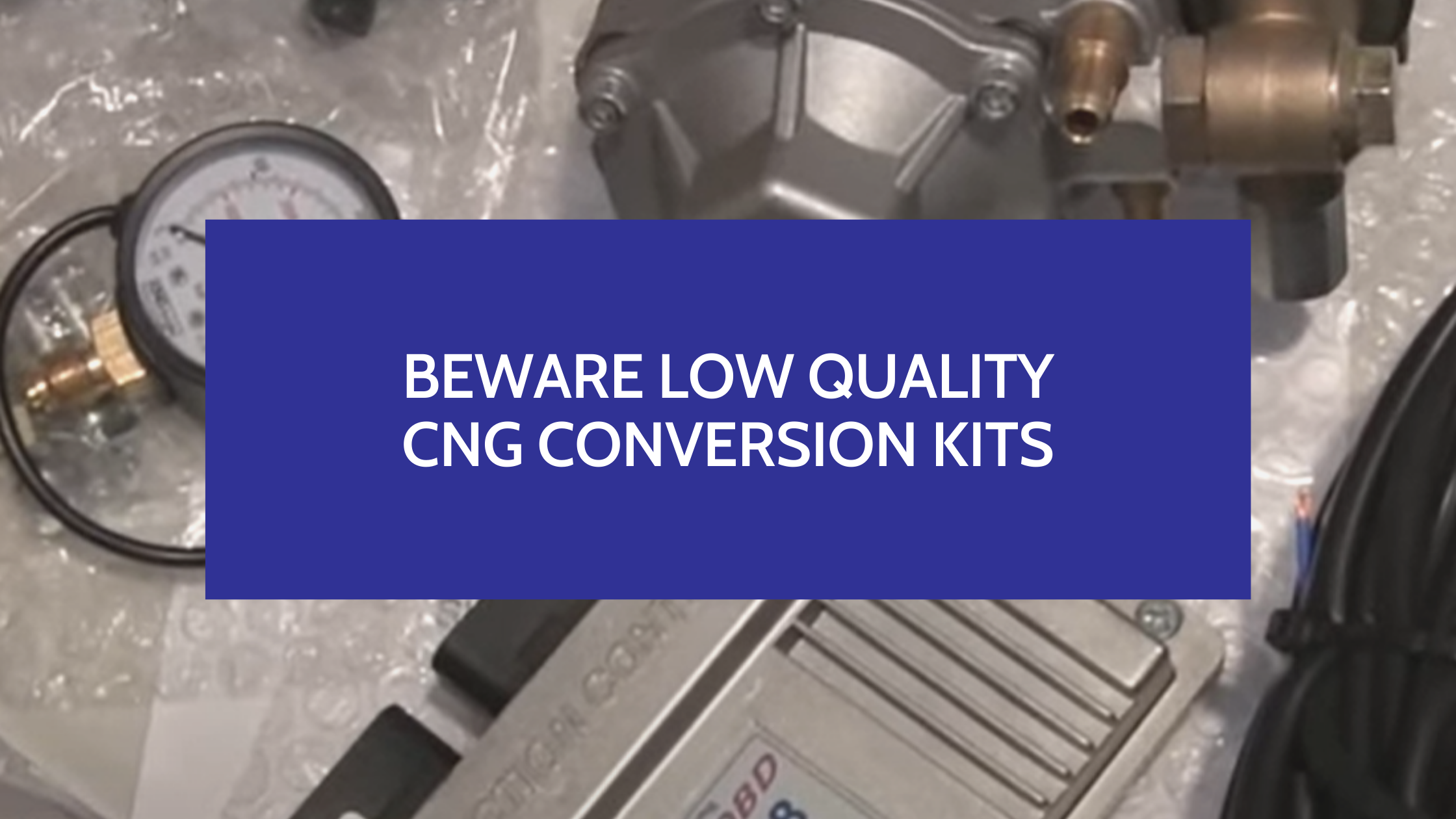Many CNG conversion kits look similar and make the same claims but, inside the box, things can be very different. Quality should always be your priority over price.
A LITTLE HISTORY
In the early 2000s, many CNG (and LPG) conversion kits came onto the market that required tampering with the vehicle’s factory emissions settings.
These kits would reprogram the vehicle’s powertrain control module (PCM) to change the way it managed fuel supply, interfere with the vehicle’s oxygen sensors (known as Lambda sensors), and block “Check Engine” lights from appearing.
This meant that your engine could be running on a too rich or too lean fuel mixture and the driver would never know. This would eventually lead to catalytic converter failure and increased emissions.
Consequently, the EPA began regulating and certifying alternative fuel conversion kits.
At SkyCNG, we only sell conversion kits that work in conjunction with your vehicle’s factory installed electronics and sensors. If our system fails to stay tuned, your check engine light will illuminate.
Here are some things to watch out for when selecting a CNG conversion kit:
WORKING PRESSURE
The kit must be rated for a working pressure of 3,600-psi, the required pressure rating for USDOT approved CNG cylinders.
Systems rated to 3,000-psi are produced for some international markets, and even some high-quality components are not intended for 3,600-psi use.
PRESSURE REGULATORS
Many pressure regulators (also known as reducers) are rated for engines up to 275 horsepower. While they will still function on higher-power engines, the regulator will begin to fail within a few thousand miles, delivering an inconsistent output pressure that will affect the fuel mixture and efficiency.
Some systems employ two regulators (known as a “dual reg setup”) to maintain good tuning on larger engines. However, they still wear out faster and they introduce additional high-pressure connections that are cumbersome to install and prone to leaking.
Dual regulators also struggle to provide sufficient fuel flow rate while maintaining the desired output pressure. High-performance injectors work best when supplied with at least 2 bar (40 psi) fuel pressure.
Some older kits include a single-stage regulator. This is outdated, but cheap, technology which cannot reduce the pressure from 3,600-psi fast enough to deliver a steady output pressure to the injector rails.
The multi-stage SkyPRO regulator supplied by SkyCNG is based on the Tomasetto Super model, and features upgraded springs, allowing us to rate it for 320 horsepower. It can deliver over 70 kg/hr fuel flow rate.
We offer a heavy-duty version for even larger engines (up to 8.0 liters!), which can deliver fuel rates over 150 kg/hr.
MIXED-AND-MATCHED KITS
In some lower-priced kits, the components look “mixed and matched”. They might include a reliable regulator, for example, but the rest of the parts have been sourced from a lower quality manufacturer.
Tell-tale signs of this type of kit are when the vendor won’t supply a complete parts list or an installation manual in English (including instructions for the calibration software).
Mixed-and-matched kits usually don’t come with a parts warranty.
MISLEADING CLAIMS
Beware kits that claim:
- they will work on pre-1996 engines. Since OBD changed at that time, the kit will not function properly. Always purchase a kit designed for OBD-II.
- to fit all engine sizes. Sequential CNG injection kits are specific to the number of cylinders in the engine.
- to be EPA certified without knowing what kind of vehicle you’re converting. EPA kits have only been certified for a very limited range of vehicles and model years.
FLY-BY-NIGHT INSTALLERS
Watch out for installers who go in and out of business, selling CNG equipment out of their garage, and not performing CNG installs on a regular basis.
SkyCNG is a full-time business. CNG is all we do. We actually drive CNG-fueled vehicles, which – surprisingly - some of the lower-cost “suppliers” don’t!
THE BOTTOM LINE
With CNG conversion kits, like most things in life, “you get what you pay for”.
Your vehicle (or other commercial engine) is something on which you depend and that you expect to operate for years without needing major repairs. Don’t compromise that trust and reliability by performing an inferior CNG conversion that you will later regret.
If you’re not sure, just ask. We’re happy to chat about the conversion you want to make and the options at your disposal. Our goal is to help you make the right decision, whether that results in you purchasing a kit from us or not.


